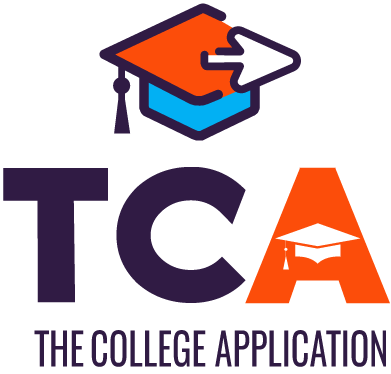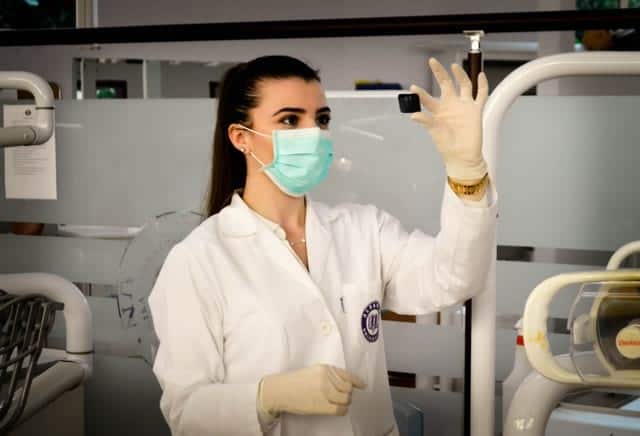Intro- Writing a Great Residency Personal Statement
When you get ready to apply for residency, which could happen as early as your third year of med school, there are really two main components to the application process: submitting your application packet to various programs and completing the required interviews for the programs interested in you. But how exactly do you make sure you get that call for an interview? One way is by including an original, memorable residency personal statement as part of your application packet.
Residency Prerequisites
Before we get to the personal statement, though, let’s look at the steps required for you to be eligible for residency.
Step 1: Receive Your Degree
Although you’ll possibly start applying for residency during the fall semester of your third year at medical school, before you can be accepted, you must have your degree. It doesn’t matter if your application looks great and your interview blows the minds of the residency selection committee; if you don’t receive your M.D. or D.O., you won’t be eligible for residency.
Step 2: Pass the Examinations
In the U.S., you’re required to pass an exam before you can become licensed to practice medicine. Traditionally, students have taken the USMLE (United States Medical Licensing Examination), but some schools now require you to take the COMLEX (Comprehensive Osteopathic Medical Licensing Examination) either instead of the USMLE or in addition to it.
For Foreign Students
If you’re a foreign student hoping to be placed in a residency within the U.S., there are a few additional requirements you’ll have to meet.
These include, but aren’t limited to, being certified by the Educational Commission for Foreign Medical Graduates (ECFMG), obtaining a legal VISA that gives you the right to work in the United States, procuring additional letters of recommendation from U.S.-based providers and more.
Applying for a Residency
What You’ll Need
As you’re putting together your residency application packet, you’ll be responsible for gathering:
- Your completed application
- Your residency personal statement
- Your letters of recommendation
There are a few other things that must be included in your application packet, but your medical school will handle those items. They include:
- Your complete and sealed transcripts
- A copy of your MSPE (Medical School Performance Evaluation)
- Your licensing exam transcript
Once you’ve gotten your half of the documents ready to submit, your medical school should take care of the rest. It’s important to fill out your application completely and accurately, as every bit of information included in the packet will be verified by multiple agencies.
The ERAS: What It Is and How to Apply
To apply for residency with almost all programs in the United States, you’ll be required to fill out an application through the Electronic Residency Application Service (ERAS). The ERAS was created and is maintained by the Association of American Medical Colleges (AAMC).
It makes applying for residency much easier because you only have to fill out one application at a centralized location. That application then gets sent to all the different programs you’re interested in becoming a part of during your residency.
If you used the Common App as an undergraduate, you already have an idea of what the ERAS is like. Unlike the Common App, though, there’s one really great thing about the ERAS that many other centralized applications don’t include: the ability to submit multiple personal statements.
Why Submit Multiple Personal Statements
You may be wondering why you’d want to write more than one personal statement when writing one is stressful enough.
The simple answer is that writing multiple personal statements gives you the opportunity to personalize your statements for the specific program to which you’re applying. For example, if you’re applying for a pediatric residency in Brooklyn, you can write your personal statement specifically about why you chose that specialty and that geographic location. Additionally, if you also apply for an internal medicine residency in Washington D.C., you can write a second personal statement outlining your reasons for that choice as well.
ERAS Portal
There are four main sections of the ERAS application portal.
Section 1: MyERAS
This is the part of the ERAS that’s your responsibility. Using MyERAS, you’ll complete the centralized application, submit your required documentation and personal statements and select the programs to which you’re applying. When it comes to filling out the ERAS, this is the only section you’ll personally have to complete.
Section 2: DWS
The DWS, or Dean’s Office WorkStation, is where the designated person in your Dean’s office will submit what s/he is required to submit on your behalf. This will include your transcripts and performance evaluations.
Section 3: LoRP
The LoRP is the Letters of Recommendation Portal. You’ll direct people who’ve agreed to provide you with letters of recommendation to this location and have them submit their recommendation letters through the portal.
Section 4: PDWS
The PDWS, short for Program Director’s WorkStation, is where the programs you’ve applied to will receive and review their incoming applications.
Help with the ERAS
In addition to having everything you need for all your prospective programs in one place, another great thing about the ERAS is that the website provides you with a lot of great resources to help ensure you get everything done correctly and submitted in a timely manner.
There’s an Applicant Worksheet that allows you to see everything the application asks before you even start working on it. There’s also a User Guide, an Applicant Checklist, a FAQ Section and an Application Timeline to keep you on track.
Writing Your Residency Personal Statement
Although each residency personal statement you write should be different depending on the program to which you’re applying, there are some things that’ll remain similar or even the same in each statement, most notably the length and overall format of the statement.
Standard Residency Personal Statement Length
The ERAS allows you to use 28,000 characters (including spaces and punctuation marks) to complete your residency personal statement. This generally translates to about five to seven pages in length. Don’t use all 28,000 characters for your statements. That is entirely too long.
You have to be considerate of the time of the person reading your statement. S/he likely has thousands of personal statements to read through, and s/he doesn’t want to spend too much time on any one statement. If possible, you should keep your personal statements to about 3,500 to 5,000 characters. This translates to about a page to a page and a half for your statement. That’s a good length that should give you enough room to say everything you need to say without rambling on about non-essential information.
Standard Residency Personal Statement Format
The format of your statements will also be quite similar. You don’t have to worry about choosing your font, font size, or anything like that. With the ERAS, you’ll be using an embedded plain text box to type your personal statement. The only formatting options available to you will be:
- Italics, Bold, Strikethrough and Underline
- Center, Left or Right Alignment
- Bullet Points
- Numbered Lists
- Add Embedded Hyperlink
- Increase or Decrease Indent
Beyond those items, you won’t be able to change anything in the formatting, but your content format is important. You should have a short introduction of three to five sentences, several body paragraphs, and a conclusion of about three to six sentences. The information you put into these paragraphs will depend largely on what exactly you’re writing in your personal statement.
Red Flags of Residency Personal Statement to Avoid
There are definitely some things you want to avoid while writing your personal statement for your residency application. Let’s call them the “Don’t List.”
Don’t Use All 28,000 Characters
We’ve already discussed this, but it warrants being said twice. No one wants to read seven pages worth of a personal statement. Absolutely do not use all the provided characters for your personal statement.
Don’t Send the Same Statement to Every Program
This is another one that we’ve touched on already, but it, too, is worth repeating. The reasons you’re applying for various programs are bound to be different for each particular program. If you try to write one single personal statement that gets sent to every program, it’s going to end up sounding generic and unauthentic.
Different programs want to know that you chose them for a reason. They want to know what it is about their program that drew your interest. If you don’t give them actual reasons for your interest, they’re going to assume you’re just desperately applying everywhere you can in hopes of getting an acceptance. That doesn’t look good in a prospective residency candidate.
Don’t Spend a Lot of Time Talking About Why You Want to Be a Doctor
By the time you get to the residency portion of your career, you’re already a doctor. Why you decided to become one is kind of a moot point. This is one place where people often get tripped up. Your residency application is not a med school application. By this point, you’ve already proven you want to be a doctor by putting in all the work to become one. Why you did it doesn’t matter. You were obviously motivated to succeed. Don’t waste precious characters rehashing your reasons for going into medicine.
Don’t Be Generic
Be specific about why you’ve chosen pediatrics, internal medicine, surgery or whatever program you’ve chosen to pursue in your residency. The person reading your statement doesn’t want to hear that you’ve chosen pediatrics because you “just love babies!” You’re an adult with a medical degree. Use all those years of education and be specific about why you’ve made the choices you’ve made.
Don’t Be Overly Dramatic
You want your personal statement to be interesting and memorable, but you don’t want it to sound like the first page of a movie script. You don’t have to set the scene dramatically with overused and cliched stories about “Patient X lying on the bed, blood rushing down his head and barely conscious as I walked up and took his hand, looked into his eyes and told him I would save his life.” Just don’t do this.
Don’t Include Anything Considered Too Controversial
Your personal statement isn’t the place for activism. Don’t get into topics such as pro-life vs. pro-choice or why you think cloning is a sin against God. It’s okay to mention that you’re a regular church member; you don’t have to shy away from religion altogether, but you don’t want to include a strong stance you hold on something that’s known to be polarizing.
The person reading your personal statement might feel just as strongly as you do about an issue, but s/he might be on the other side of that issue. That could get your application discarded quickly.
Don’t Submit Unedited Statements
Never, never, never, never send in your first draft. Don’t ever send in a statement that hasn’t been proofread, edited, and then edited some more. Bring in a second pair of eyes to look it over (hey! see our personal statement editing packages here) if you need a fresh perspective, but never send in something that hasn’t been thoroughly edited for grammar, spelling, organization, and content errors.
Don’t Plagiarize!
Last but certainly not least: Don’t plagiarize your personal statement! We can’t overemphasize this point. If you aren’t a strong writer, it’s okay to reach out and have a friend, mentor or former professor help you organize your thoughts and edit the statement at the end, but no matter how much you may be tempted, do not plagiarize your personal statement.
First and foremost, you’ll get caught.
There are just way too many plagiarism checkers (we recommend you use Grammarly plagiarism checker) on the market today for you to get away with stealing someone else’s work – even if you only take a small part of it. Then, once you’ve been caught, you lose all professional respectability.
If you’ve plagiarized your personal statement, odds are you’ve cheated before now. No one trusts a doctor who cheats, and the person/people who caught you cheating have to wonder if you’re even a good doctor. Perhaps you just cheated your way through med school and really don’t know an obstetrician from an ophthalmologist.
Put simply, just don’t cheat. It isn’t worth it.
Residency Personal Statement Prompts
Although the ERAS doesn’t give you a specific prompt to follow while writing your residency personal statement, there are a few programs that do ask specific questions. If a program does ask a specific question on its website, you should strongly consider that question when writing your personal statement. Try to answer it as honestly and completely as possible.
Most programs don’t provide you with specific prompts, but there are still some questions to ask yourself to help guide your writing.
Below are some of the most commonly asked prompts and questions.
1. What are your professional goals?
This is a commonly covered question in many residency personal statements. Remember, at the residency stage of your career, you’re already a doctor, so this personal statement is no longer why you want to be a doctor; it’s about what you want to do now that you’ve become one.
Don’t be afraid to go into detail here. Talk about both your short-term (during residency and immediately after completing residency) and your long-term goals (15+ years from now).
Do you want to open your own practice? Do you plan to stay within the U.S., or would you prefer to take your expertise elsewhere through Doctors Without Borders or some other organization? What specific skills are you hoping to gain from the residency that’ll help you further your career goals?
2. What types of patients do you enjoy working with?
This question really concerns the specialty you’re interested in pursuing. For example, if you’re interested in working in pediatrics, the obvious answer here would be that you like to work with children. You shouldn’t leave it at that though.
Are there certain types of children you like to work with best? For example, would you prefer to work with special needs children as opposed to healthy children just coming in for check-ups? Perhaps you have a passion for women’s health or simply prefer to work with women.
If this is the case, an OBGYN specialty might make more sense for you. Do you want to work with the elderly? Would you prefer to work in neighborhoods full of predominantly low-income or minority households? If you hope to pursue plastic surgery, are you doing so because you want to work with amputees in order to build them new limbs?
All of these questions can be taken into account when talking about the types of patients with whom you most prefer to work.
3. What contributions can I make to the specialty and the residency program?
Chances are, the program you’re applying to knows why you want to be accepted for a residency position by them, but why should they want to accept you? When answering this prompt, talk about what makes you a good fit for the specialty you’ve chosen. If you have any particular skills or strengths that would fit well with what you’re hoping to achieve during residency, mention those.
Something else to discuss is anything you’ve done in your history that would prepare you for working with the population you’re likely to encounter in that particular residency spot. If you have an undergraduate degree in psychology, that could be hugely beneficial if your residency serves a large veteran population.
If you grew up in a low-income, first-generation neighborhood or have teaching experience at a Title I school, that could prepare you for working at a hospital in a similar neighborhood.
4. What are your strong points?
This question is really just another way of asking what benefits you’d bring to the residency if you were accepted. Many of the same things you’d write about if answering the above-listed prompt are the same things you’d write about here. You could discuss the characteristics you have that make for a good doctor.
You could also list any strengths you have academically. For instance, if you excelled at one or two particular subjects, it’s a good idea to mention those. Receiving superior performance evaluations is also something worth noting.
Residency Personal Statement Examples
The following are some of the best examples of what to do and what not to do when writing your residency personal statements. Note that these are just examples; don’t use them in your own statements.
Example Personal Statement 1
“During my third year, I rediscovered my reasons for pursing [sic] a career in Pediatrics. […] I enjoy teaching young patients and their parents about their disease and how they can conquer hardships. Also, I am excited about taking care of patients from birth to adulthood. Working with young people is rewarding because of the chance to be involved in a growing relationship with patients as they mature and learn. […] Pediatrics gives me the determination to think through problems, the curiosity to learn, and the energy to stay awake at three in the morning. When you love your patients it becomes easy to work hard for them.”
– Read the rest here
This is a very well-written personal statement. The writer clearly has a passion for working with children, but she doesn’t just come out and say that with no detail. She talks about the specific things she enjoys about working with children.
Furthermore, she talks about how she believes pediatric medicine to go beyond just treating kids. She talks about “a growing relationship” with the patients she treats and her desire to treat them as they grow and mature into adulthood.
In addition to being a moving example of a personal statement, it also shows that the writer plans to be in the medical field for the long haul. You don’t build relationships and treat patients from infancy into adulthood unless you plan to stick with the career.
This is her way of saying, “I plan to do this for the rest of my life” without having to come out directly and say those words.
Our Verdict:

Example Personal Statement 2
“I have many attributes to contribute to internal medicine. My experiences as a secondary education school teacher, Special Olympics swim coach, and elected class officer attest to my ability to lead and educate others. I am also analytical and detail-oriented. […] After my first year of medical school, I was awarded a scholarship to conduct research in the field of trauma surgery, an experience which enhanced my problem solving skills. These qualities include a never-ending quest for personal improvement, pride in my work or training, and the ability to focus on several tasks while balancing personal and professional obligations.”
– Read the rest here
This is another good example, written in response to prompt number three above. The writer tells about all the things he brings to the team, but he doesn’t focus specifically on medicine.
If you’re applying for residency as this author is, you’ve obviously achieved what you needed to achieve in order to become a doctor. You’ll bring all kinds of medical knowledge to the team. The problem is that every other applicant has also received his or her doctoral degree and also brings medical knowledge to the table.
The writer knows that and goes beyond medicine when talking about his strengths and what he has to offer. He talks about being a teacher and helping with the Special Olympics. This shows that he already has experience working with children – both healthy children and children with special needs.
He brings up being an elected class officer to show he has leadership potential and that he’s well-liked and well-respected by others (otherwise they wouldn’t have elected him). Only after listing all those extra strengths does he bring up med school. This is a very impressive list of accomplishments.
Our Verdict:

Example Personal Statement 3
“Every finger of the little boy’s hand was adhered to his palm except for the extended third digit. I examined the severe burn injury as the plastic surgery attending discussed how we were going to fix the damage. Several contracture releases, K-wires, and skin grafts later, I excitedly realized he would eventually regain function of his little hand. I didn’t know what I wanted to be at the start of my third year, but after patients and cases like this one, I was energized by learning what I found in no other rotation. […] I have found my place in medicine.”
– Read the rest here
While this personal statement is well-written grammatically, it breaks rule number five on the “Don’t List.” Don’t be overly dramatic. This is supposed to be his personal statement, not the opening scene to The Resident on Fox. The writer wastes an entire paragraph – his entire introduction – on a dramatic scene that ends with one single sentence telling us this is why he wants to work as a plastic surgeon.
First of all, an introduction should be more well-rounded and introduce the reader more fully to who you are. It shouldn’t set a scene that thousands of other prospective residents have told some version of already.
Secondly, one has to hope that one single child’s broken hand is not the sole basis for this person’s decision to become a plastic surgeon. I want a doctor who has thought carefully about his/her chosen profession and decided to pursue medicine because of numerous different reasons, not just because he saw a child’s hand being fixed once.
While these types of stories may seem like an easy, interesting way to catch the reader’s attention quickly, they’re best avoided. Trust us when we say that the person reading your personal statement has read countless other “war stories” about prospective residents’ experiences in ERs and other situations. As amazing as your story may seem to you, it isn’t likely to impress them.
Our Verdict:

Example Personal Statement 4
“Then disaster struck. I applied to Medical School and I didn’t get in. I was heartbroken. It never occurred to me that I might not get accepted. I felt completely lost. The only dream I ever had, the one that I had spent so many hours working on, was now dead. A part of me just died. It was one of the few times I ever cried. I know [sic] had to live with a void that could never filled [sic].
Looking back, not getting accepted to Medical School in 1985 was probably the best thing that could have happened to me. It fueled a desire in me to find something else. Fortunately, I found an area where I have become more financially successful than I deserve. […] Years later, I decided to give Medical School one last try. This time I was accepted. The void began to fill. I would like the opportunity to learn more and complete the process.”
– Read the rest here
This is absolutely, 100% what you should not do in your personal statements. If you visit the original statement, you’ll see we only removed about two total lines from this personal statement. That means it was about ten lines long altogether, which translates to about 1,200 characters.
That is much too short for a personal statement. You don’t want to use the entire 28,000 characters, but you don’t want to write something less than a page long either. There’s almost no usable information here.
The writer doesn’t mention what specialty she’s hoping to pursue, nor does she mention a single strength that would make her a good candidate for the position. Beyond not mentioning any strengths, though, she highlights her failures!
If there’s something negative on your transcripts or application, it’s fine to touch on it and give a brief explanation for it and how you corrected it, but it certainly shouldn’t make up the bulk of your personal statement.
This one is just bad from beginning to end.
Our Verdict:

Example Personal Statement 5
“While medical school can teach a student the science behind medicine, I truly believe it’s a doctor’s personality and character that ultimately determines his or her success with patients. One of my greatest qualities […] is my ability to quickly connect with people. At an orientation lecture […] a speaker discussed how […] anesthesiologists are among the best at making great first impressions. […] Patients always seem to fear going to sleep more than [surgery]. Yet, an anesthesiologist may have but just a few moments […] to instill confidence in their patients. […] Since that orientation, I’ve prided myself on mastering how quickly I can earn a patient’s trust. Enjoying the challenge of making a great first impression in the shortest amount of time is among the most important reasons that have guided me into the specialty of anesthesiology.”
– Read the rest here
Let’s end on a strong note. This is another exceptional example of what your personal statements should look like. This writer has a good grasp of number three on the “Don’t List.” Don’t waste a lot of time talking about why you want to be a doctor.
The writer touches on med school by saying, “While medical school can teach a student the science behind medicine.” Then she immediately goes beyond school into the real world.
In doing so, she also showcases a very important characteristic she’s developed – putting people at ease – and tells us the specialization she’s chosen. She also explains why her ability to put people at ease is so important for her chosen specialization.
She ends by saying that this skill was challenging for her, but the way it’s written shows that she was not only up for the challenge but legitimately loved it.
This whole statement is well-written, well-organized, and covers all the important aspects of what the residency selection committee wants to know about a person.
Our Verdict:

In Conclusion
The most important things to remember when writing your residency personal statement are, to be honest, authentic, specific, and grammatically correct. You’ve already earned your degree; that alone shows the selection committee that you have what it takes to be a doctor because you already are one.
You just have to show that you have a passion for medicine and that you’ll bring something unique and important to their team. If you can do those things, you should be well on your way to the interview process.
Related Readings:
The Best Laptop for Medical School Guide Here
5 Best MCAT Prep Books, According to Med Students


